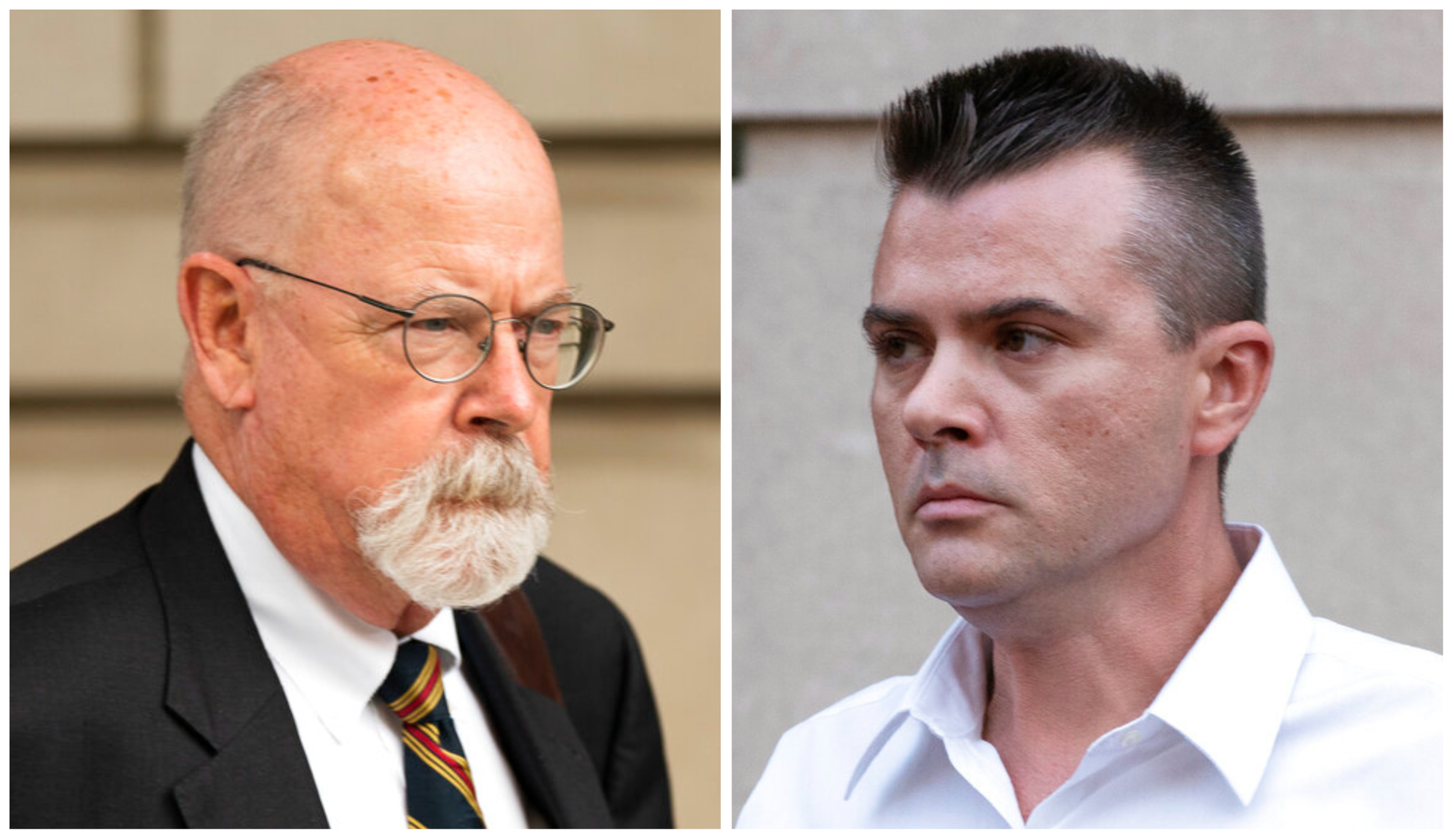ALEXANDRIA, Virginia — Special counsel John Durham took aim at the FBI in the closing stages of his trial against Steele dossier source Igor Danchenko.
Closing arguments in the trial concluded on Monday afternoon, and the jury is now deliberating. Addressing the “elephant in the room” at the trial, Durham made it clear that he believed the FBI had botched up its Trump-Russia investigation but that lies told to the bureau about British ex-spy Christopher Steele’s dossier still mattered.
Durham said that “the FBI mishandled the investigation at issue” and that “the FBI didn’t do what they should have done” in the inquiry, bluntly saying that “the FBI failed here.” He said the jury did not have to “feel bad for the FBI agents” and stressed that his special counsel team “is not here to defend the FBI’s handling” of the dossier.
The special counsel also offered up possible options on the FBI’s botching of the Trump-Russia investigation, rhetorically asking if the FBI was “simply incompetent,” “working in coordination,” “or whatever.”
JUDGE IN DURHAM-DANCHENKO CASE DISMISSES ONE OF FIVE FALSE STATEMENT CHARGES

The trial has revealed Danchenko was on the FBI’s payroll as a confidential human source from March 2017 to October 2020, before he was charged in November 2021 with five counts of making false statements to the bureau. He has pleaded not guilty.
According to Durham, Danchenko anonymously sourced a fabricated claim about Trump 2016 campaign manager Paul Manafort to Charles Dolan, a Clinton ally who spent years, including 2016, doing work for Russian businesses and the Russian government. The judge threw out that charge before the jury could decide on it.
Durham’s indictment also says Danchenko lied to the FBI about a phone call he claims he received from someone he believed was Sergei Millian, a Belarus-born U.S. citizen and businessman the Steele source had said told him about a well-developed conspiracy of cooperation between then-candidate Donald Trump and the Russians, which the special counsel says is false.
The trial also revealed the Justice Department provided Danchenko with partial immunity in January 2017. The immunity arrangement called for “complete and truthful testimony” from Danchenko. The agreement indicated that “your client must answer all questions regarding the subject matter of this investigation and must not withhold information” and that Danchenko was not supposed to “falsely implicate any person” nor attempt to shield or protect anyone. Durham said the agreement was void if Danchenko lied, which the special counsel says he did.
FBI supervisory intelligence analyst Brian Auten, who testified during the trial last week, was one of the FBI agents who interviewed Danchenko in January 2017. He revealed the FBI had offered Steele an incentive of up to $1 million if he could prove the allegations of collusion in his dossier, but the FBI analyst said the former MI6 agent was unable to corroborate the claims.
FBI agent Kevin Helson, who was the handling agent for Danchenko, testified that the dossier source went on to become a key part of the FBI’s efforts to combat Russian influence in the U.S., despite never being able to corroborate any of the dossier.
CLICK HERE TO READ MORE FROM THE WASHINGTON EXAMINER
Helson made an October 2020 request to pay Danchenko a lump sum of $346,000, and his testimony revealed that would have brought the total amount the Russian lawyer had been paid by the bureau over a few years up to a total of $546,000. The lump-sum payment request was denied.
A member of the FBI’s Human Intelligence Validation Unit also suggested that Danchenko may have been part of Russian intelligence services, according to court testimony, and Durham highlighted how Helson apparently did not do his due diligence in looking into the Russian analyst’s background before signing him up as a confidential human source.

